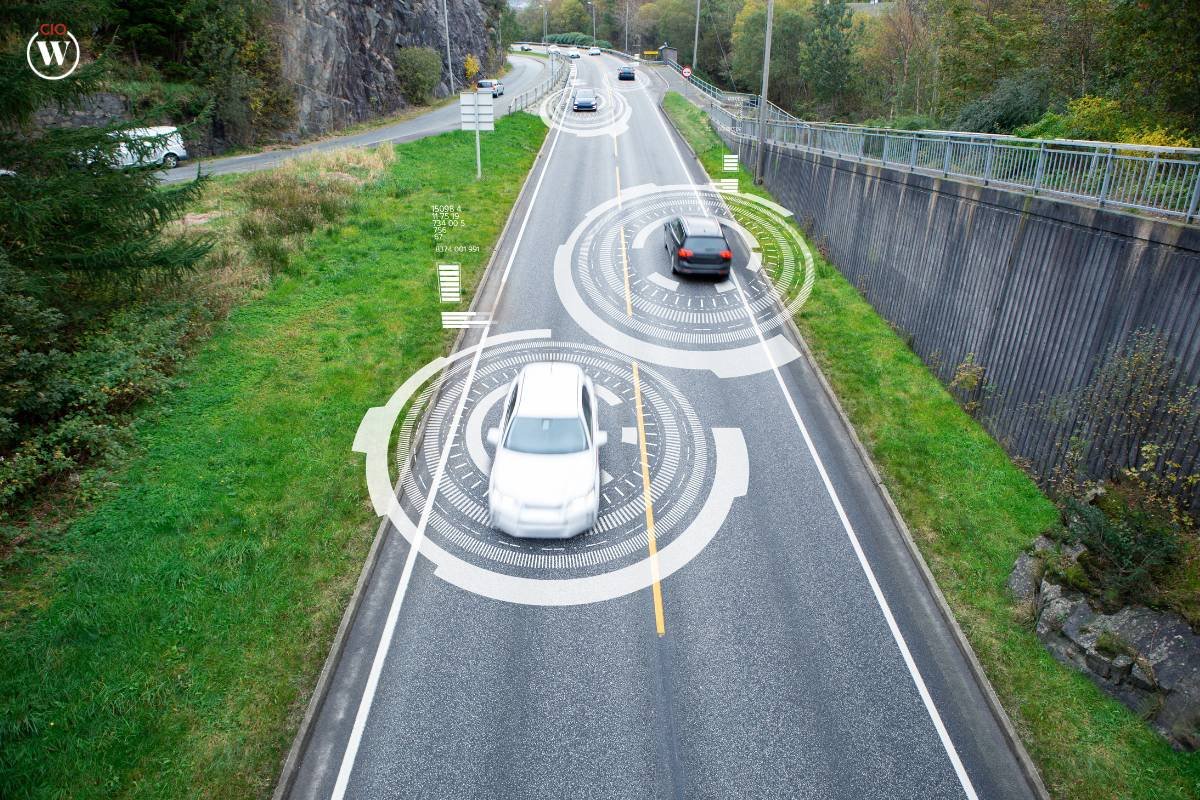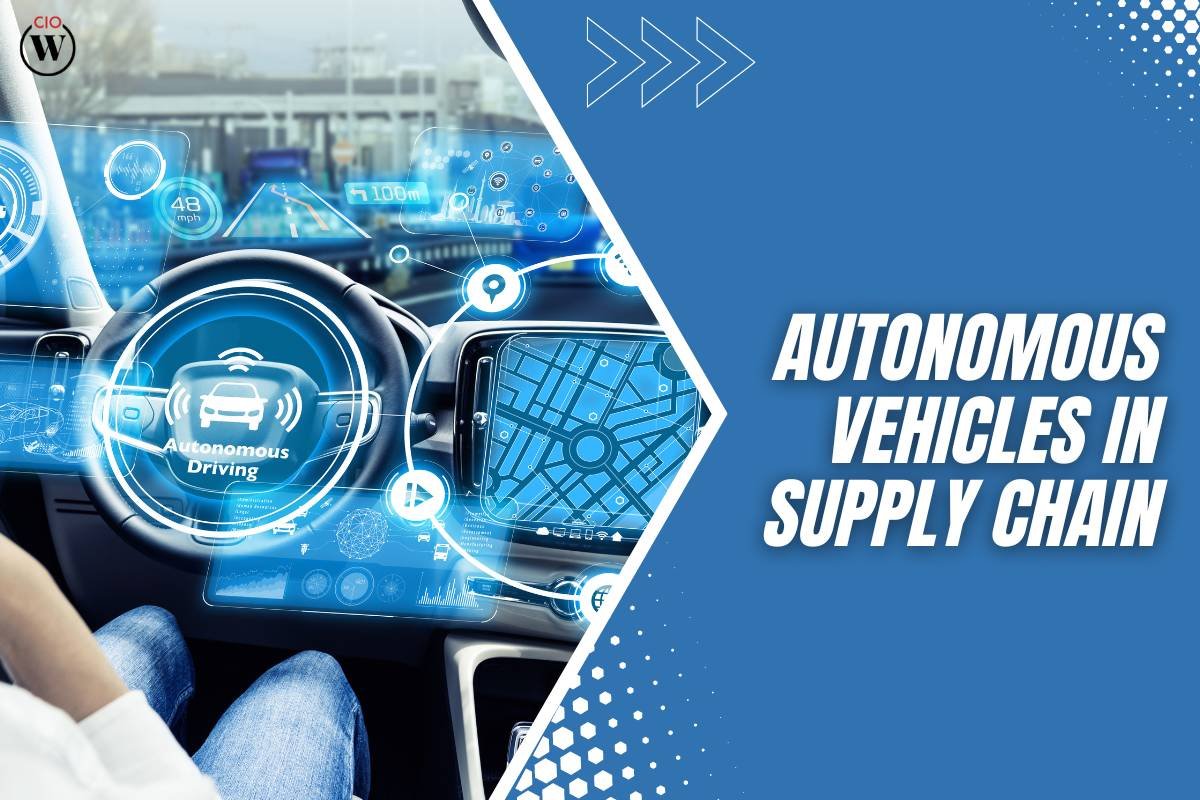In the ever-evolving landscape of supply chain management, the integration of autonomous vehicles (AVs) has emerged as a pivotal innovation. Autonomous vehicles, equipped with cutting-edge technology such as AI and advanced sensors, are revolutionizing the way goods are transported and distributed. In this article, we explore the transformative impact of autonomous vehicles in supply chain operations optimization and driving efficiency.
The Rise of Autonomous Vehicles in Supply Chain Management
Autonomous vehicles are redefining traditional supply chain processes by offering unparalleled efficiency and reliability. From self-driving trucks to drones, these vehicles operate without human intervention, navigating complex routes and delivering goods with precision. The integration of AVs into supply chain management offers a myriad of benefits, including:
1. Enhanced Efficiency
Autonomous vehicles optimize route planning and execution, resulting in reduced delivery times and fuel consumption. With real-time data analytics and predictive algorithms, AVs adapt to changing traffic conditions, ensuring timely deliveries and minimizing operational costs.
2. Cost Reduction
By eliminating the need for human drivers, autonomous vehicles significantly reduce labor costs associated with transportation. Moreover, AVs mitigate the risk of human errors and accidents, leading to lower insurance premiums and maintenance expenses for businesses.
3. Improved Safety

Safety is a top priority in logistics operations, and autonomous vehicles excel in this aspect. Equipped with advanced sensors and collision avoidance systems, AVs detect obstacles and navigate traffic with precision, reducing the risk of accidents and ensuring the safe transportation of goods.
4. Scalability and Flexibility
Autonomous vehicles offer scalability and flexibility, making them ideal for dynamic supply chain environments. Whether it’s transporting goods within a warehouse or delivering shipments across long distances, AVs adapt to varying demand levels and operational requirements, enhancing supply chain agility.
5. Enhanced Sustainability
Autonomous vehicles contribute to sustainability efforts by optimizing fuel consumption and reducing carbon emissions. By streamlining delivery routes and minimizing idle time, AVs support environmentally friendly practices in supply chain operations.
Challenges and Considerations
While the adoption of autonomous vehicles holds immense promise for supply chain optimization, several challenges need to be addressed:
1. Regulatory Compliance
The deployment of autonomous vehicles is subject to stringent regulations governing safety, liability, and data privacy. Governments and regulatory bodies must establish clear guidelines to ensure the safe integration of AVs into the supply chain ecosystem.
2. Technological Advancements

Despite significant progress, certain technical challenges remain unresolved, such as sensor reliability and cybersecurity threats. Continued research and development efforts are essential to enhance the performance and reliability of autonomous vehicle technology.
3. Workforce Transition
The transition to autonomous vehicles may face resistance from workers in the transportation industry concerned about job displacement. Businesses must invest in retraining programs and workforce development initiatives to facilitate the transition to a more automated supply chain environment.
4. Ethical Considerations
Autonomous vehicles raise ethical questions regarding decision-making algorithms and liability in the event of accidents. Stakeholders must engage in ethical discussions and establish frameworks that prioritize human safety and societal well-being in AV deployment scenarios.
5. Infrastructure Readiness
The widespread adoption of autonomous vehicles requires infrastructure upgrades to support their operation, including robust communication networks and charging stations for electric AVs. Addressing infrastructure gaps is essential to facilitate the seamless integration of AVs into existing supply chain networks.
Future of Autonomous Vehicles in Supply Chain Management
Despite the challenges, the future of autonomous vehicles in supply chain management looks promising. Key trends shaping the future of AVs include:
1. Integration with Emerging Technologies
Autonomous vehicles will increasingly leverage emerging technologies such as the Internet of Things (IoT) and blockchain to enhance transparency and traceability in supply chain operations. By integrating AVs with IoT sensors and blockchain platforms, businesses can track the movement of goods in real-time and ensure compliance with regulatory requirements.
2. Collaboration and Ecosystem Integration
Collaboration between stakeholders across the supply chain ecosystem will be crucial for maximizing the benefits of autonomous vehicles. Seamless integration and data sharing among manufacturers, logistics providers, and retailers will enable end-to-end visibility and optimization of supply chain operations.
3. Last-Mile Delivery Solutions
Autonomous vehicles, particularly drones and delivery robots, hold immense potential for revolutionizing last-mile delivery operations. By overcoming urban congestion and delivery time constraints, AVs offer cost-effective and eco-friendly solutions for delivering parcels directly to customers’ doorsteps.
4. Environmental Sustainability

The adoption of autonomous vehicles can contribute to environmental sustainability by reducing carbon emissions and promoting energy efficiency. AVs optimize fuel consumption and minimize idling time, thereby mitigating the environmental impact of transportation activities.
5. Infrastructure Development
The widespread deployment of autonomous vehicles will require significant investments in infrastructure, including dedicated lanes and charging stations. Governments and private sector stakeholders must collaborate to build the necessary infrastructure to support the seamless integration of AVs into existing transportation networks.
6. Data Security and Privacy
As autonomous vehicles rely on data-driven algorithms and connectivity, ensuring data security and privacy is paramount. Robust cybersecurity measures and data protection protocols must be implemented to safeguard sensitive information and prevent unauthorized access to AV systems.
Conclusion
Autonomous vehicles in supply chain management are reshaping the landscape, offering unparalleled efficiency, safety, and scalability. As businesses navigate the complexities of adoption and regulation, they stand to reap substantial rewards in terms of cost savings, operational excellence, and customer satisfaction. By harnessing the transformative power of autonomous vehicles, the supply chain industry can drive innovation and achieve new levels of efficiency and agility.
Also Read: 15 Prime Benefits of Business Consolidation









